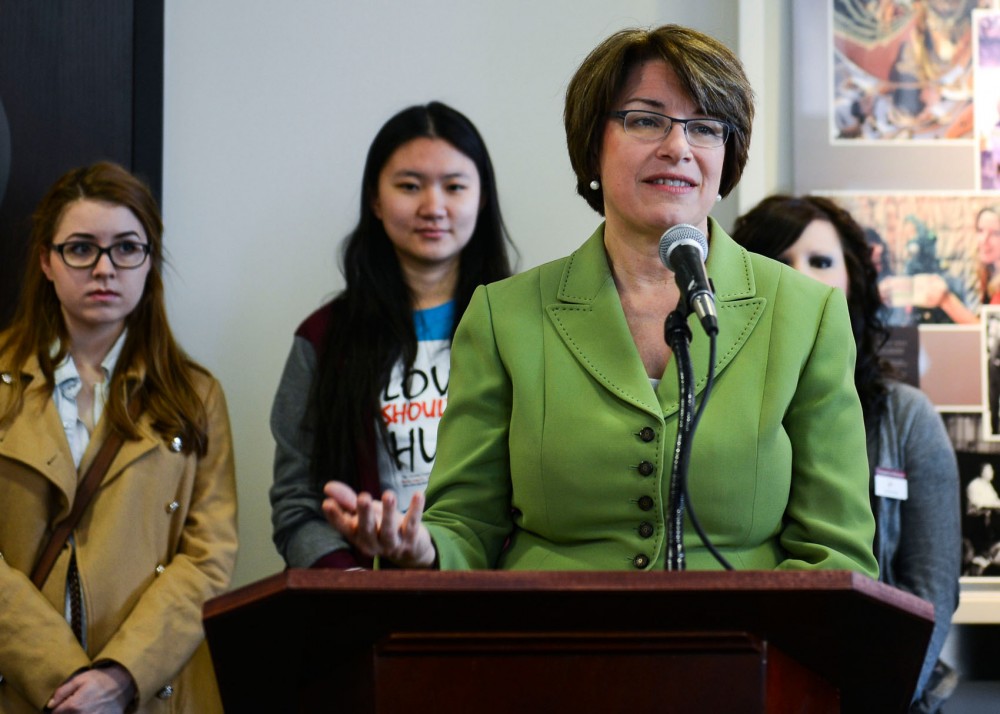Recent attention from the White House has pushed the issue of sexual assault on college campuses into the national spotlight, bringing both praise and pressure for schools across the country.
On Thursday, the United States Department of Education released a list of 55 schools under investigation for Title IX violations in handling sexual violence and harassment complaints.
Big Ten schools, including Michigan State University, Ohio State University and Penn State University, were on the list. No Minnesota schools were listed.
U.S. Sen. Amy Klobuchar, D-Minn., held a press conference Friday at Coffman Union to discuss sexual assault awareness and prevention.
While Klobuchar praised current efforts at the University of Minnesota, she also stressed that the issue of sexual violence on college campuses is ongoing.
“Just because you’re not on the list doesn’t mean there’s not a problem,” she said. “You still have sexual assaults going on on this campus and other campuses throughout the country.”
Klobuchar is pushing for more federal funding and staffing for campus sexual assault prevention and victim advocacy programs — an effort to ensure that campuses comply with recommendations from the White House Task Force to Protect Students from Sexual Assault.
The task force, formed by President Barack Obama in January, released its first report last week outlining steps colleges and universities can take to prevent campus sexual assault. The recommendations range from making advocates and crisis counselors available 24/7 to administering a campus climate survey.
University President Eric Kaler said at the press conference that after reading the task force report, he believes the University is doing well.
“We are, of course, not perfect, nor is this campus immune from sexual violence,” he said. “Unfortunately, it’s far from it.”
Next steps
Many of the task force recommendations are already in place, or are in planning stages, at the University.
Like many other colleges, the University investigates sexual assault cases internally as it does for other student conduct violations. Earlier this year, it updated its policy to include an equal appeals process, among other things, just as the Campus Sexual Violence Elimination Act took effect March 14.
Genetics, cell biology and development senior Jessica Tarnowski is a violence prevention educator and direct services advocate for the Aurora Center. Tarnowski helps man the center’s 24-hour hotline and works with students. Many schools don’t allow students to work directly with victims, she said.
“I think that peer counseling is very helpful,” Tarnowski said.
Still, there’s more to be done.
Incoming MSA President Joelle Stangler said MSA plans to address sexual assault in the coming year.
“A big priority for us right now is training,” she said.
The Aurora Center currently provides 40-hour training for volunteers and also has one-hour training sessions available for student groups. Stangler said MSA hopes to create five- to six-hour programs for students.
Ideally, she said, representatives from each fraternity, sorority and athletics team on campus would go through the training.
Aurora Center Director Katie Eichele said the task force report provides a helpful set of recommendations.
“Institutions are always looking for helpful guidelines and resources and best practices,” she said, “and sometimes having a larger entity being able to research and provide those guidelines provides some continuity for people who have experienced sexual violence.”








